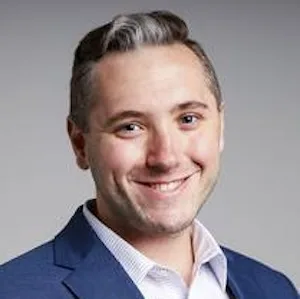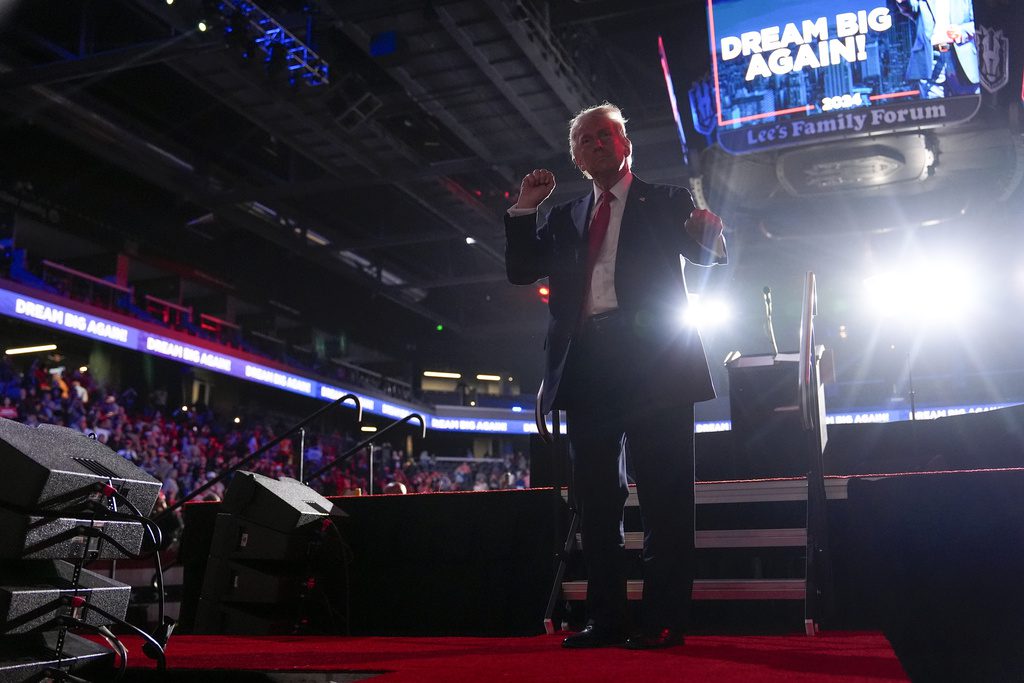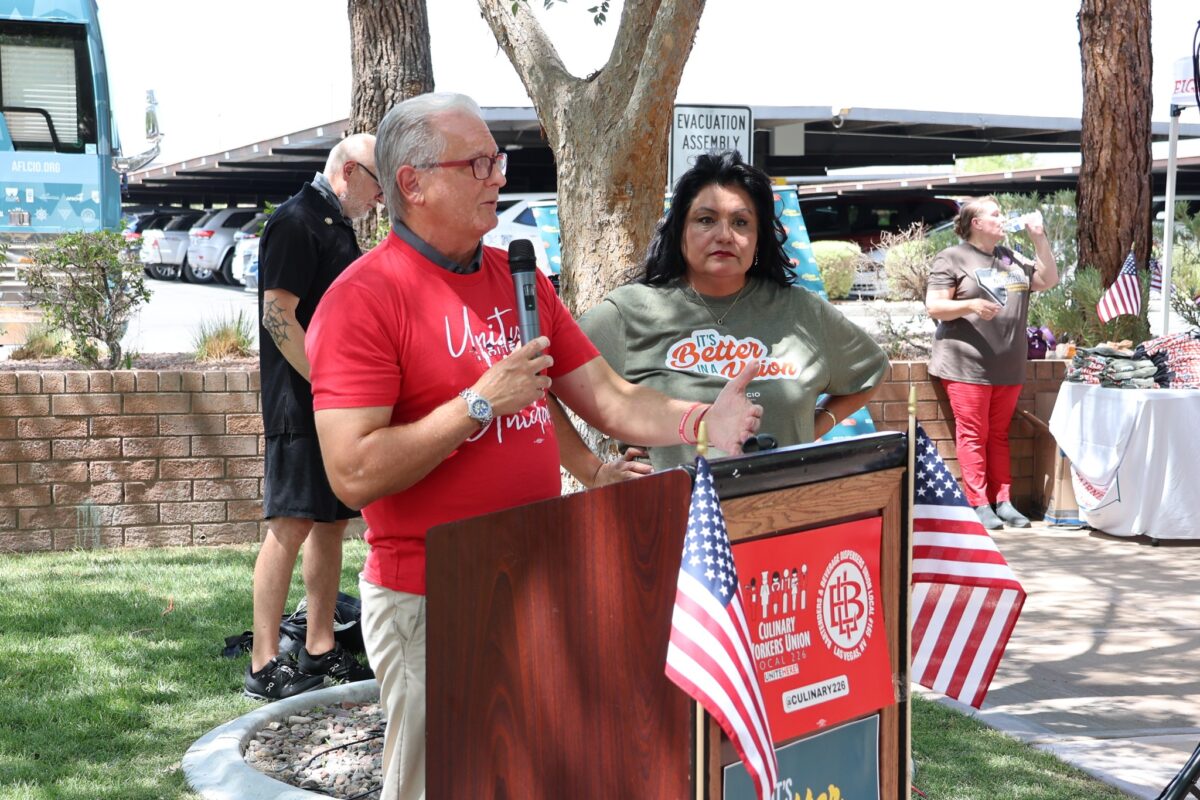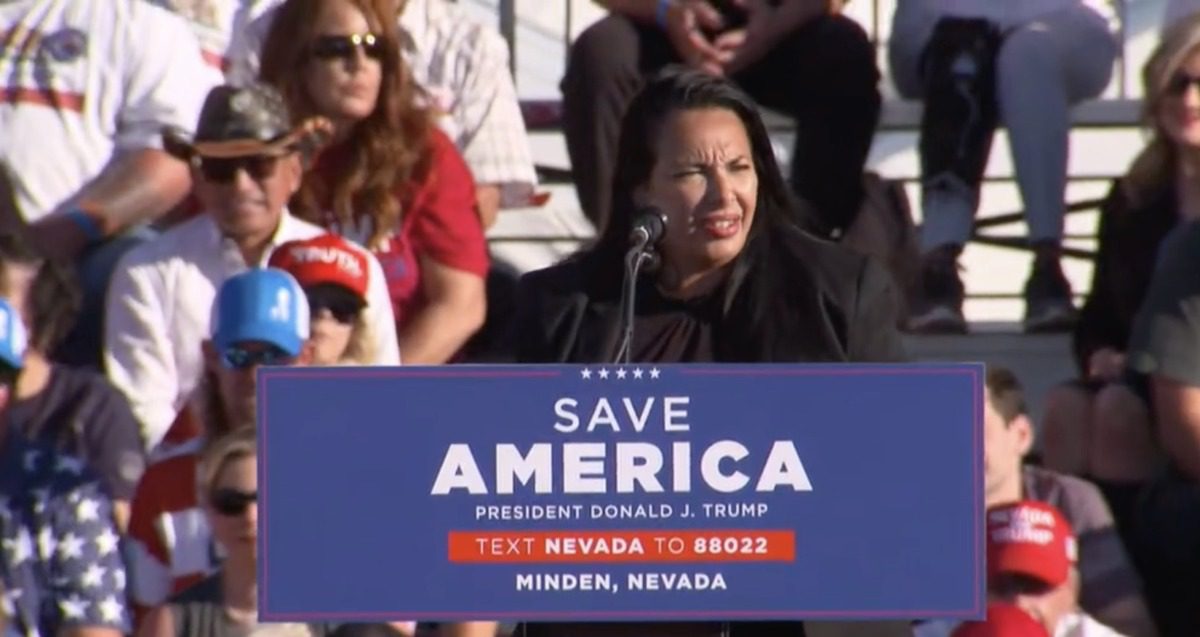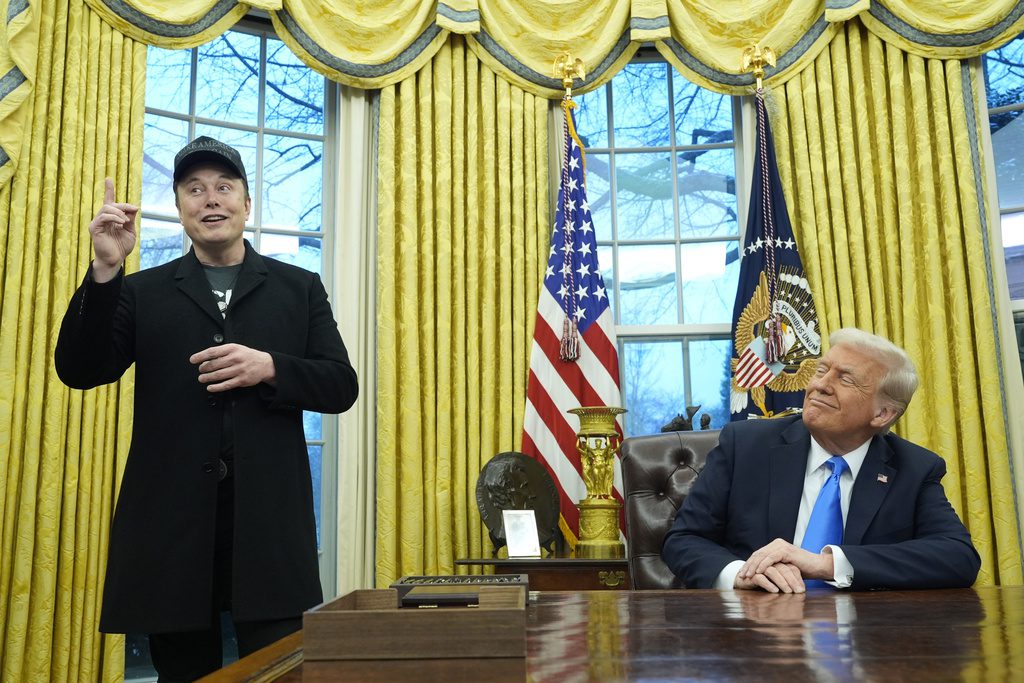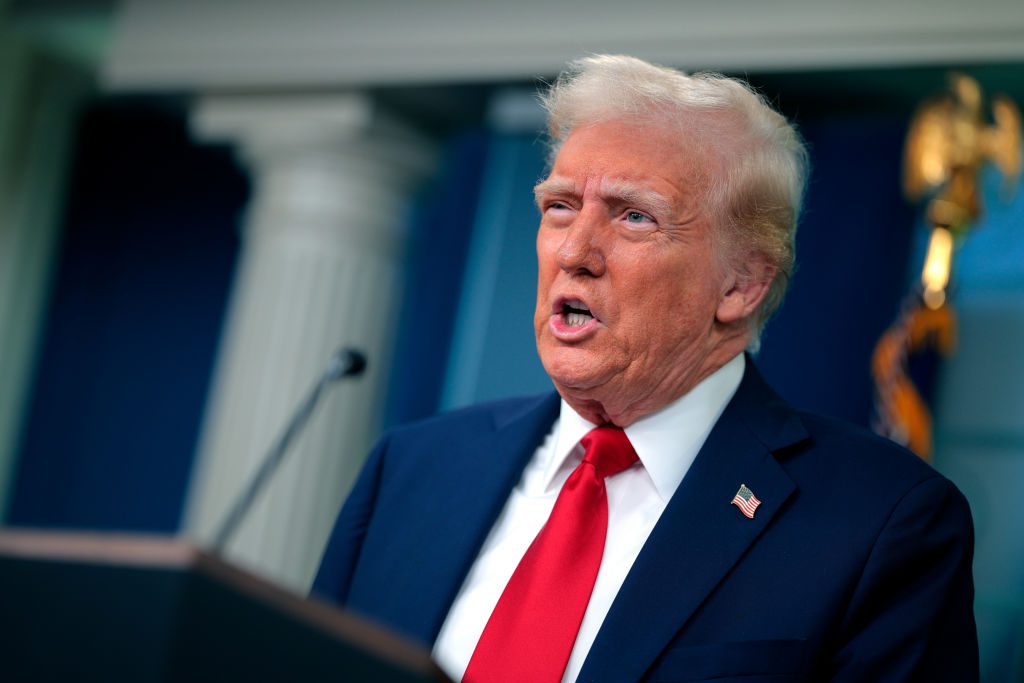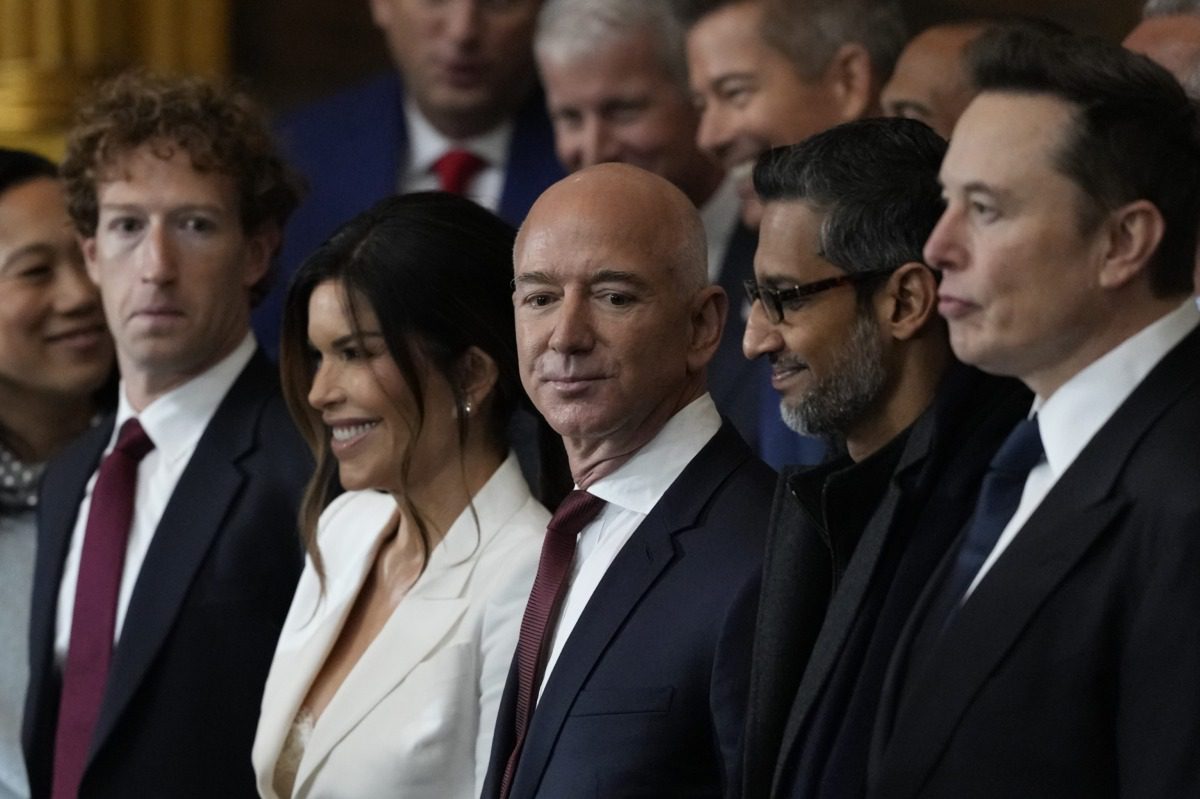
Guests including Mark Zuckerberg, Jeff Bezos, Sundar Pichai and Elon Musk, arrive before the 60th Presidential Inauguration in the Rotunda of the U.S. Capitol in Washington, Monday, Jan. 20, 2025. (AP Photo/Julia Demaree Nikhinson, Pool)
Notably absent during Trump’s address was anyone from the blue collar working class that helped Trump back to the White House, but sitting front-row as the president’s personal guests were three of the world’s wealthiest men who used their media platforms to drastically shape the outcome of last year’s presidential race.
Throughout the campaign trail, Donald Trump did his best to illustrate the United States as a nation on the verge of collapse, with most everyday Americans on the brink of financial ruin due to skyrocketing prices of everyday staples caused by an ineffective federal government Trump said only he could clean up.
That, of course, proved to be a winning argument for voters — especially the young, working-class men, whose record turnout helped deliver the presidency to Trump. During his inaugural address Monday, Trump said he would tap his cabinet to “marshal the vast powers at their disposal” in order to “rapidly” bring down prices.
“Our recent election is a mandate to completely and totally reverse a horrible betrayal, and all of these many betrayals that have taken place, and to give the people back their faith, their wealth, their democracy and indeed their freedom,” Trump said. “From this moment on, America’s decline is over.”
But notably absent during Trump’s address — which was moved indoors to the Capitol Rotunda, amid subfreezing temperatures — were any of those working-class heroes that helped Trump back to the White House, who instead were relegated to nearby venues several blocks away from the official inaugural activities.
Rather, watching from the front row as Trump’s personal guests were three of the world’s wealthiest individuals (Meta chief executive Mark Zuckerberg, Amazon founder and Washington Post owner Jeff Bezos, and X, Tesla, and SpaceX owner Elon Musk) who used their respective media platforms to drastically shape the outcome of last year’s presidential race. Other business elites who had donated millions to Trump’s inaugural fund were also present.
MORE: Nevada advocates disappointed after lawmakers support bill targeting undocumented people
As photos from Trump’s inauguration showing the billionaire clique emerged, so too did the sense of a startling disconnect between the President’s words on the campaign trail and his actions on Day 1 of his second term.
“President Trump is making it clear that he will support the ultra-wealthy and big corporations, and has no real plans to lower costs at the grocery store and the gas pump,” Nevada Democratic US Sen. Jacky Rosen, who attended Trump’s inauguration ceremony, told The Nevadan in a statement. “I was elected to the Senate to stand up for hardworking Nevadans who are being squeezed by high costs and ripped off my massive corporations.”
Other local leaders took note as well.
“We’ve seen Trump’s empty promises to win over the working-class and his rhetoric succeeds time and time again,” Susie Martinez, executive secretary-treasurer of the AFL-CIO of Nevada, told The Nevadan in an email. “It’s not surprising that he only aligns himself with the three wealthiest men in the world and continues to treat the Oval Office like a New York City socialite gathering. Look at the seating chart during the inauguration. The wealthy elite had better seats than members of Congress.”
Martinez also said she anticipated the disparity between the richest Americans and the poorest will grow. A 2021 report from The Hill found the gap between America’s highest- and lowest-income earners grew about 9% annually under Trump, roughly two percentage points higher than the average annual rate of 7% recorded between 1990 and 2015 — a span that included three economic recessions.
In Trump’s first presidency, housing prices also spiraled out-of-reach for an estimated 70% of US residents, nearly 30 million lacked health insurance, and nearly 12 million children lived in poverty (a figure that fell under the Biden administration to roughly nine million).
Laura Martin, executive director of the Progressive Leadership Alliance of Nevada, told The Nevadan that while Trump won the popular vote, turnout was actually down nationally compared to the 2020 election, and suggested Trump’s supposed voter-led mandate is actually the sign of a struggling democracy.
More than 150 million votes were cast during the 2024 election, in which Trump defeated Democratic nominee Kamala Harris by about 2.3 million votes, good for 49.9% of the national popular vote. An estimated 90 million active registered voters sat out.
“They don’t have a mandate for power because a majority of people just don’t vote,” Martin said. “We don’t want transactional politics. The kinds of transactions we want are about the access to government, and our voices being heard and listened to.”
For virtually every president who came before Trump in the modern age, the sheer optics of associating with the uber-rich would have sparked a controversy in its own right. But for Trump, his relationships with the elite will likely be remembered as a footnote, in part because of his effectiveness at creating diversions through other forms of controversy, such as the trove of executive orders signed Monday relating to immigration, or stunts like renaming the Gulf of Mexico to the Gulf of America, said Sondra Cosgrove, a history professor at the College of Southern Nevad;.
“He does more of a shotgun scatter shot,” Cosgrove said. “He says so many outrageous things all at the same time. For my students and the people I’m close to, they’re more concerned with what he’s going to do with immigration, and they don’t really care if Elon Musk was sitting on-stage.”
That’s also not to say that past presidents also haven’t cozied up with corporate interests, Cosgrove added, but the outpouring in support over recent months from the likes of Zuckerberg and Musk also puts on full display Trump’s transactional brand of politics, and the quasi-oligarchs that emerge from the process. Musk, for example, was tapped to lead Trump’s newly-created Department of Government Efficiency after donating hundreds of millions to Trump’s campaign.
RELATED: State panel warns Trump policies could dampen economic outlook
“I think that’s what is different about Trump, is that he is transactional in public,” she said, adding that a fledgling two-party system helped pave the way for a strongman like Trump to emerge. “When you have a two-party system and you’ve gone with one party, and they’re not fixing things, what are your choices? I guess it’s the other guy.”
Cosgrove continued: “Then you get extremism, and extremism can take a whole lot of forms and shapes.”
Athar Haseebullah, executive director of the American Civil Liberties Union of Nevada, pointed out Trump’s highly-touted plan to impose tariffs as a means to advance his domestic and global affairs agenda is a regressive tax that disproportionately hurts poorer US consumers disproportionately compared to richer Americans.
“If your one economic proposal is about tariffs, which are passed directly to the consumer, it’s the exact opposite of attempting to reduce inflation, when every economist out there is arguing that it is hyper-inflationary,” Haseebullah said.
Additionally, many economists believe Trump’s plan to deport a record number of undocumented immigrants would kneecap economic growth and particularly harm industries like construction, hospitality, and agriculture by reducing the supply of workers, therefore increasing the price to produce certain goods. A potential mass deportation program could also result in billions in lost tax revenue.
“There’s this notion of just bringing down costs, but at the same time they are speaking about the largest deportation effort in history,” Haseebullah continued. “That not only is beyond the realm of what America is capable of affording, but the divestiture that would end up potentially including for undocumented folks, who pay into the federal, state and local systems of taxation, it’s not replaceable.”
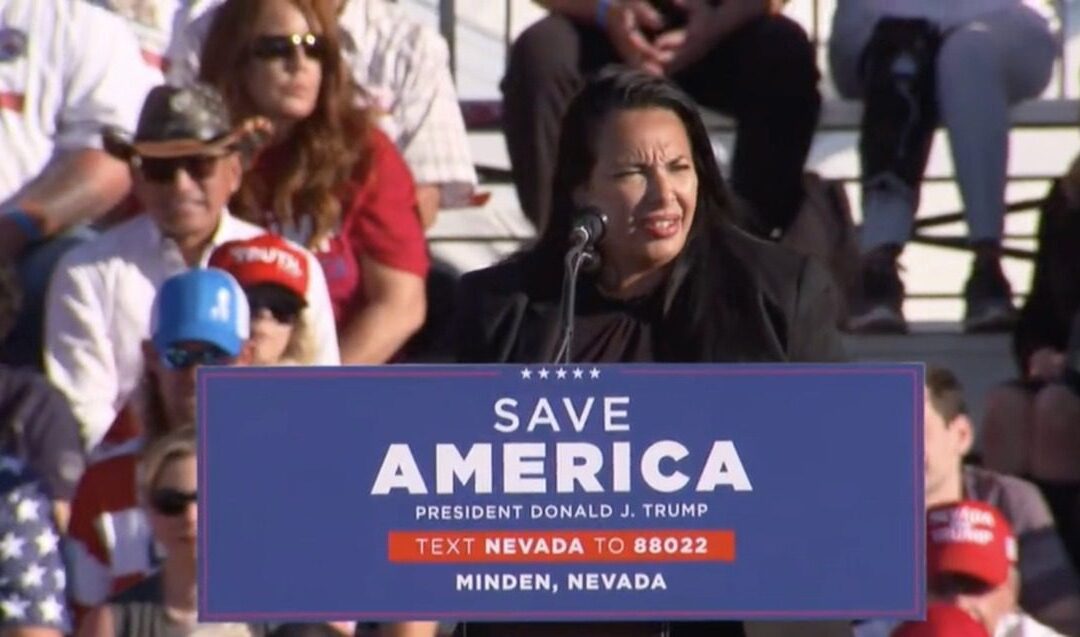
Trump appoints Chattah Nevada’s interim U.S. Attorney
By Dana Gentry, Nevada Current Nevada Republican National Committeewoman and former political candidate Sigal Chattah has been nominated by...

Trump administration plans to cut 80,000 employees from Veterans Affairs, according to internal memo
“What’s going to happen is VA’s not going to perform as well for veterans, and veterans are going to get harmed,” said Michael Missal, who was the...
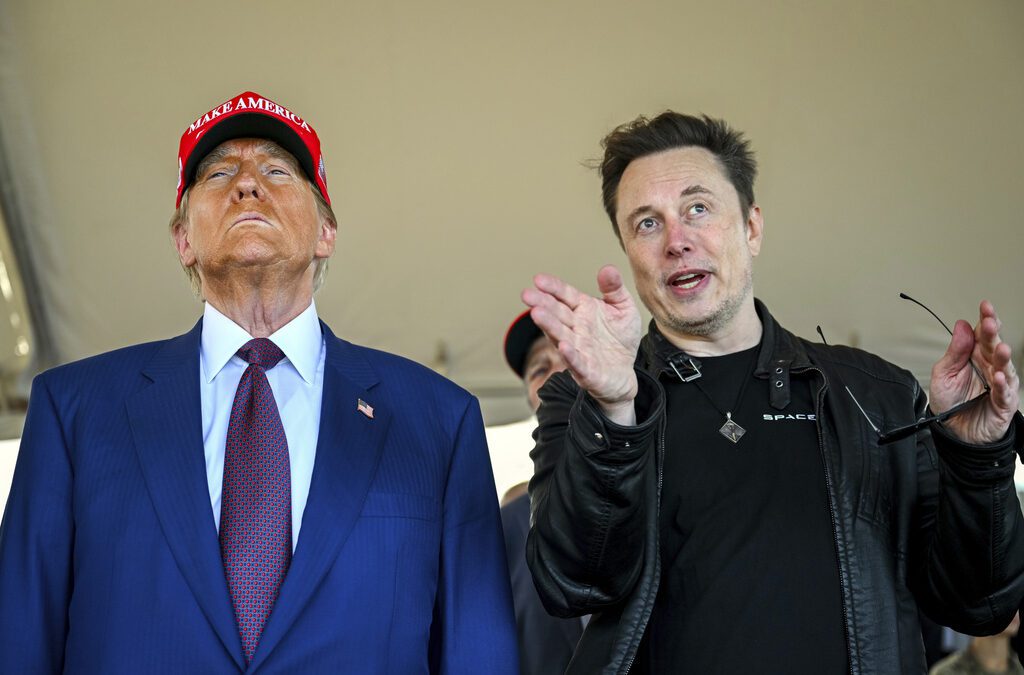
Nevada part of multistate lawsuit seeking injunction against Elon Musk
Plaintiffs say Trump needed Congressional authorization to create the agency now known as DOGE, and that Musk needed to be confirmed by the US...

